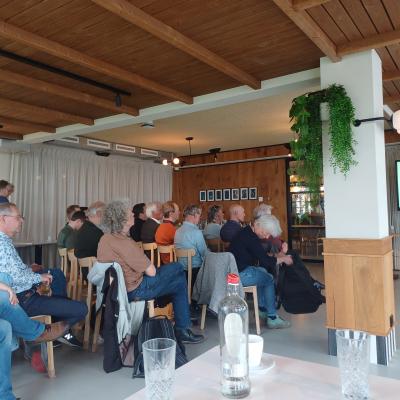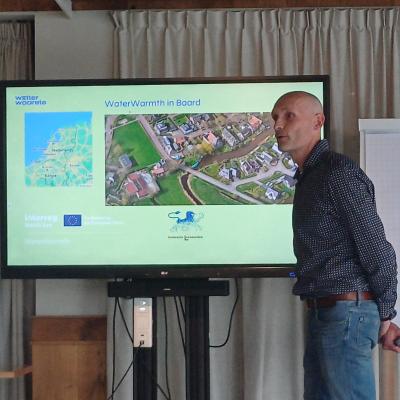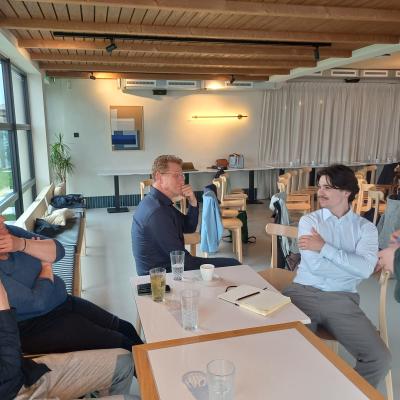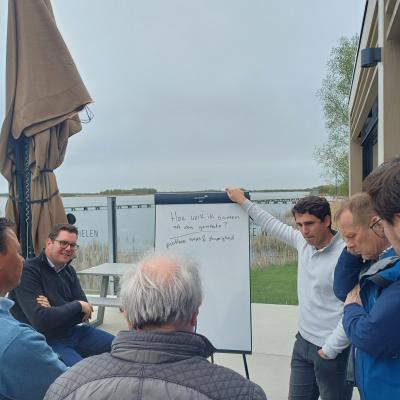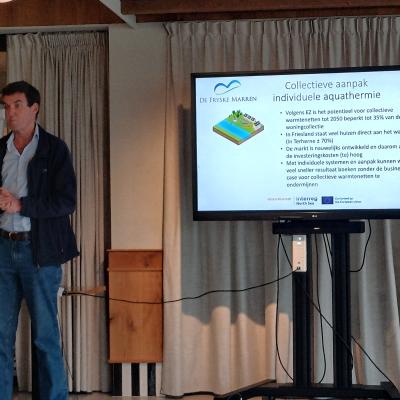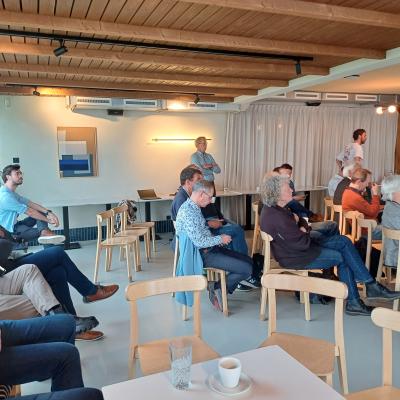A diverse group of participants – from initiators already in the tendering phase to those still exploring possibilities – recently gathered at the in-person community of practice for Wetterwaarmte. The location, right by the water of the Grote Wielen in Leeuwarden, was symbolically chosen. In the future, this surface water could serve as a sustainable heat source for buildings through aquathermal energy.
The meeting began with a presentation by the municipality of Súdwest-Fryslân, highlighting the importance of knowledge sharing: acquiring technical know-how, learning from other initiatives, and exchanging experiences. The role of municipalities is crucial in this process. Their involvement must begin at the very first idea, not only during implementation. Only then can residents be properly supported and projects successfully launched.
Recently, the municipal council of Súdwest-Fryslân approved the establishment of a municipal heating company. This decision, based on a solid business case and a comprehensive heating program, underscores the importance of trust, support, and financial feasibility. It was aptly summarized as an unbroken cycle: leadership > cooperation > policy > support > leadership.
In a presentation by the municipality of Leeuwarden about the pilot in Baard – part of the WaterWarmth project – challenges were also discussed. Ownership issues around the quays and necessary replacements turned out to be unexpected hurdles. Nonetheless, the project is primarily considered a learning process. The design of the heating network intentionally anticipates future expansion. More participants will improve the feasibility of the operation. The fact that three versions of the plan were considered before settling on the current one demonstrates the value of learning from what doesn't work.
The lessons from Baard consistently highlight the same core values: trust, realistic expectations, and sufficient support. These also emerged during a case study in which participants worked in groups to address questions about success factors for collective heating networks. One group powerfully summarized their insights with the keyword "trust", concluding that clear communication – such as transparent ground rules from the start, a shared vision, and unified goals – forms the foundation for successful collaboration among initiators, participants, and government bodies.
One thing is clear: leadership, collaboration, and knowledge sharing are the driving forces behind a future-proof heating system. Clear national frameworks, such as a national roadmap for collective heating, can help make complex projects the new standard more quickly.

